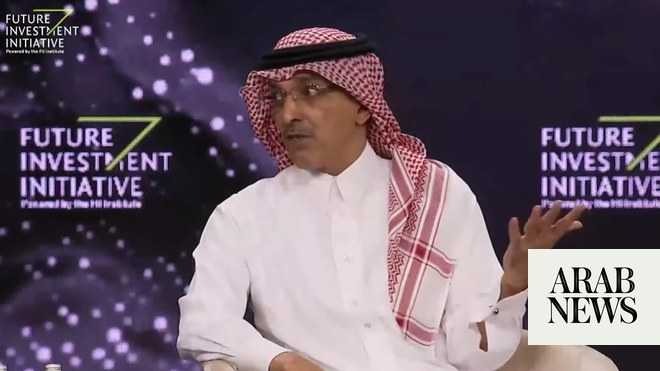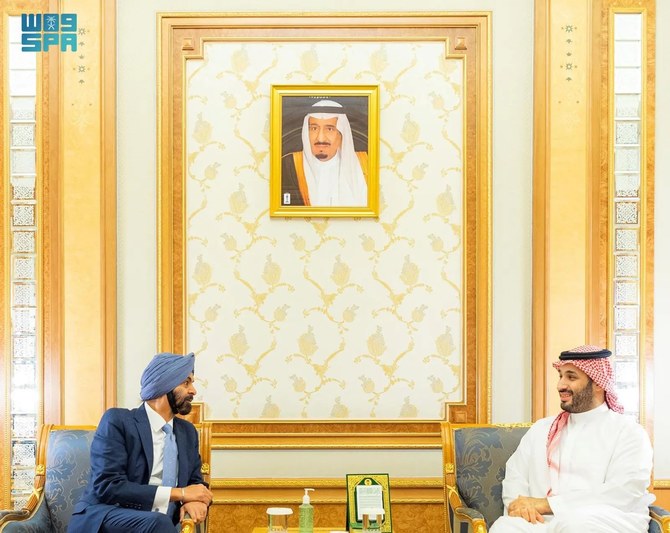Saudi Arabia’s Finance Minister, Mohammed Al-Jadaan, has expressed Saudi Arabia’s willingness to assist in repairing relations between the United States and China. The statement was made during a panel discussion at the Future Investment Initiative in Riyadh, where Al-Jadaan underscored the importance of maintaining robust trade ties with both nations.
Fostering International Relations
Al-Jadaan’s remarks come at a critical juncture when both Beijing and Washington are actively seeking to de-escalate tensions that have arisen from a series of disputes, including trade issues and the sensitive Taiwan question. The Saudi Finance Minister conveyed his country’s readiness to contribute towards mending these relations, emphasizing the significant strategic alliance with the United States and the pivotal role China plays as their largest trading partner. He stated, “If there are opportunities that we can make the relationship between the US and China better, we will.”
Economic Resilience and Diversification
Transitioning to economic matters, Al-Jadaan highlighted Saudi Arabia’s impressive economic growth, which is poised to remain resilient despite global challenges. The Kingdom recently achieved a substantial non-oil gross domestic product expansion of 6.1 percent in the previous quarter, with an overall growth projection of 6 percent for 2023. The Minister explained that this growth is a result of their concerted effort to diversify their economy outside of the oil industry, a fundamental objective of the Vision 2030 initiative.
He stated, “As far as Saudi is concerned, we no longer concentrate on total GDP numbers because total GDP has two components: the oil GDP and the non-oil GDP. The whole Vision 2030 initiative is all about diversifying the economy outside the oil industry.”
Saudi Arabia’s Vision 2030 aims to decrease its dependency on oil, traditionally a cornerstone of its economy, by focusing on sectors such as tourism, logistics, and various industries. The goal is to increase the share of non-oil exports in non-oil GDP from 18.7 percent to 50 percent by 2030. Al-Jadaan underlined that this economic growth would not only benefit Saudi citizens but also have positive implications for low-income countries.
“For countries to be able to help others, they need to be strong,” he emphasized, calling for multilateral institutions like the International Monetary Fund to prioritize supporting low-income nations in boosting their economies.
Global Economic Unity and Peace
The Saudi Finance Minister also underscored the importance of avoiding economic fragmentation, asserting that imposing strict trade restrictions is counterproductive. He expressed, “It does not really help with the current situation to have more restrictions on trade, which will add to inflation.”
Addressing the ongoing crisis in Gaza, Al-Jadaan stressed the significance of respecting international laws and the need for de-escalation to restore peace in the region. “Our sympathy goes to those who are suffering, civilian casualties wherever they are. International laws need to be respected,” he remarked, emphasizing the necessity of collaboration for global stability.
The panel discussion also featured key insights from other prominent figures, including Khalifa Al-Khalifa, Bahrain’s Minister of Finance and National Economy, who highlighted the Gulf countries’ robust economic diversification efforts. He pointed out that all Gulf nations are actively pursuing diversification, positioning them favorably in the global arena.
Kristalina Georgieva, Managing Director of the IMF, emphasized the need for relentless reforms and international cooperation in a divided world, particularly to counter slow global growth and high interest rates.
Mehmet Şimşek, Turkey’s Minister of Finance, emphasized the urgency of de-escalation in conflicts, highlighting the long-term implications for regional stability.
The Future Investment Initiative’s seventh edition, themed “The New Compass,” continues to serve as a platform for in-depth discussions on critical topics, such as climate change, the economy, and technology. This year’s conference emphasizes the transformative potential of governments, technology, education, and healthcare in shaping a more prosperous future for the world. Saudi Arabia’s commitment to fostering international relations and promoting economic resilience stands as a testament to the collaborative efforts required to navigate the complexities of the modern world.
















